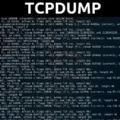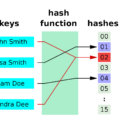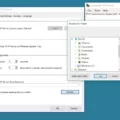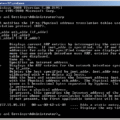If you’re looking for an alternative to Wireshark, you’ve come to the right place. Wireshark is a very popular network protocol analyzer, but there are other tools out there that can do the same job with better features and more flexibility. In this blog post, we’ll be discussing some of the best Wireshark alternatives available on the market today.
Deep Packet Inspection (DPI) is a tool that can be used to understand and analyze network traffic in real time. It provides detailed information about packet headers and payloads, which allows troubleshooting and security analysis. DPI is especially useful for large networks where it can be used for traffic monitoring and control.
ManageEngine OpManager is an all-in-one network monitoring software that provides comprehensive performance metrics for your entire network. It includes features such as layer 2/3 topology mapping, bandwidth utilization monitoring, threshold alerts, and more. It is particularly suitable for small networks with limited resources but still needs advanced monitoring capabilities.
PRTG Network Monitor is a powerful network monitoring tool designed to identify network issues quickly and easily. It provides detailed information about packet headers and payloads while also allowing users to set up custom alarms based on specific conditions or thresholds. Additionally, it offers extensive reporting capabilities so users can track performance over time and make informed decisions about their networks.
Cloud Shark is a cloud-based traffic analysis tool that provides detailed insights into your web application performance and security posture. It leverages machine learning algorithms to detect anomalies in your traffic patterns so you can quickly identify potential threats or problems before they become serious issues.
Sysdig is an open-source system monitoring platform that provides comprehensive visibility into your infrastructure environment at scale. It offers powerful filtering capabilities for analyzing data in real-time as well as detailed reports so you can identify trends or areas of improvement in your operations over time. Additionally, Sysdig supports multiple operating systems including Linux, Windows, macOS, and more!
Packets is an open-source packet inspection platform designed to help developers debug their applications quickly and efficiently by providing detailed insights into how their code interacts with others on the internet or within a private network environment. It also supports multiple languages including Python, Java, JavaScript, GoLang, and more!
Colasoft Capsa is a professional network analysis tool that gives users access to rich visualizations of their network data such as packet decodes, conversation views between hosts or protocols on the wire as well as trends over time in usage statistics or application metrics like response times or throughput rates among others things. This makes it particularly useful for troubleshooting complex networking issues quickly without requiring deep technical knowledge from users.
All of these tools are great alternatives to Wireshark that provide additional features not found in the original program such as cloud support or advanced filtering capabilities as well as visualization options for understanding data faster than ever before! Depending on what type of user you are (beginner vs expert) these options should give you plenty of flexibility when choosing the right solution for your needs!
Alternative Tools to Wireshark
There are several tools available that can be used as an alternative to Wireshark. tcpdump is a popular command-line tool for network troubleshooting, management, and analysis that many users prefer over Wireshark. CloudShark offers cloud-based packet analysis and is another great option. Colasoft Capsa is a network analyzer specifically designed for efficient packet capture, analysis, and reporting. Sysdig provides comprehensive visibility into system activity by providing an intuitive UI and powerful filtering capabilities. Mojo Packets offers an advanced packet analyzer with the ability to drill down into individual packets. Finally, SolarWinds RMM provides network monitoring, troubleshooting, and performance tracking without needing an expert in networking protocols or packet analysis to use it effectively.
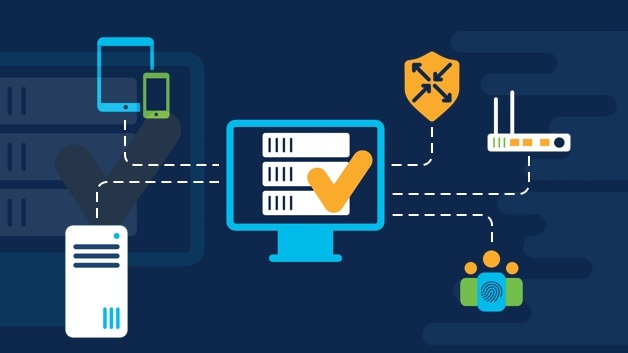
Alternative Applications to Wireshark
Savvius Omnipeek is an application that provides similar functionality to Wireshark. This traffic analyzer has a packet capture add-on that allows for detailed packet analysis. It is designed for Windows and can be installed on the user’s computer. Ettercap is another packet sniffer which gives users useful information about their network and can be used by hackers or defenders. It’s capable of monitoring traffic on both wired and wireless networks, making it a great alternative to Wireshark.
The Relevance of Wireshark in Modern Times
Yes, Wireshark is still relevant. In fact, its prevalence in the industry has grown significantly since its release in 1998. Wireshark is a powerful network analysis tool that enables users to analyze data from a wide range of networks and protocols. It can be used to investigate network issues and detect malicious activity, as well as to monitor network performance and diagnose system problems. Additionally, it can be used to capture packets and decode them into their constituent protocol layers. This is useful for developers seeking to understand how their application works over the network or for security professionals investigating potential breaches. Furthermore, Wireshark’s user-friendly interface makes it easy for even novice users to quickly get up and running with the program. As such, Wireshark remains an invaluable tool for IT professionals, making it more relevant than ever before.
Do Ethical Hackers Utilize Wireshark?
Yes, ethical hackers use Wireshark as an important network security tool. Wireshark is a powerful network packet analyzer that can capture and analyze network traffic in real time. It allows ethical hackers to observe the communication between two or more devices on a network, enabling them to detect any malicious activity or potential security risks. With Wireshark, ethical hackers can easily identify potential vulnerabilities in a system and take steps to fix them before they are exploited by malicious actors. Additionally, Wireshark allows ethical hackers to monitor for suspicious activity on their networks and investigate any suspicious packets that may indicate malicious activity. By using Wireshark, ethical hackers can help ensure their networks remain secure and protected against malicious actors.
The Benefits of Using Wireshark for Hackers
Hackers use Wireshark to capture unencrypted data from a network in order to gain as much information about the target as possible. By capturing and analyzing network traffic, hackers can gain access to IP addresses, ports, DNS records, user credentials, and other data that can be used to launch an attack. Wireshark is an open-source packet analyzer that allows for deep analysis of network traffic and helps hackers to identify potential vulnerabilities within the system that can be exploited. Additionally, by monitoring traffic patterns over time, hackers can gain insight into how the system works and identify weak points that can be leveraged to gain access.
Drawbacks of Wireshark
The main drawback of Wireshark is that it cannot run from outside a network. This means that users are limited to capturing and analyzing packets that are sent and received within the confines of their own network. Additionally, since Wireshark doesn’t facilitate packet injection, it’s not possible to manipulate or modify any of the data in transit. As such, Wireshark is best used for passive monitoring, as opposed to active testing or debugging.
The Restrictions on the Use of Wireshark
Wireshark is not allowed because it can be used to capture and monitor data being sent over a network, which can potentially be used to gain access to confidential or sensitive information. Wireshark can be used for malicious purposes such as stealing passwords, gathering personal data, and even hijacking computers. Without the informed consent of the owner of the network or data, using Wireshark could be considered a violation of privacy and may even be illegal in some jurisdictions. Additionally, using Wireshark without proper training and knowledge of its features can lead to serious security risks, as it is possible to inadvertently expose or compromise sensitive data if the wrong settings are used.
Comparing Wireshark and Fiddler
The primary difference between Wireshark and Fiddler is the operating systems in which they can be installed. Wireshark is available for Windows, Mac, and Linux, while Fiddler is only available for Windows.
Wireshark is a network protocol analyzer and packet sniffer that allows users to capture and interactively browse the traffic running on a computer network. It can decode different protocols and display their contents in a human-readable format. It also provides detailed information about each packet such as source and destination addresses, protocol type, and other data.
Fiddler, on the other hand, is a web debugging tool primarily used to debug web applications by capturing traffic from web browsers. It monitors all HTTP(s) traffic between a client machine and server, allowing users to view requests sent and responses received by the browser in real time. It also helps developers debug their applications more effectively by providing additional features such as breakpoints, request/response editing, automatic authentication handling, etc.
Comparing TShark and Wireshark
TShark and Wireshark are both packet-capturing tools that are used for analyzing network traffic. While Wireshark is a graphical user interface (GUI) application for inspecting packets, TShark is a terminal-oriented version of Wireshark designed for capturing and displaying packets from the command line when an interactive user interface isn’t necessary or available.
TShark has the same features as Wireshark, but it allows users to capture and analyze network traffic without having to open up the full Wireshark GUI. This makes it especially useful in situations where you need to monitor and analyze network traffic without being able to use a graphical user interface. It also supports a variety of command line options that allow users to filter and customize their packet captures, making it a powerful tool for network analysis.
Can Wireshark be Used for Malicious Purposes?
Yes, Wireshark can be used maliciously. It is possible to construct malicious packet capture files that contain malicious code in the form of a URL link. If a recipient is tricked into double-clicking the URL link, they could unknowingly download and execute malicious code or malware onto their device. Therefore, it is important to be aware of potential threats when downloading and opening any packet capture files from unknown sources.
Conclusion
In conclusion, Wireshark is an essential tool for network troubleshooting, learning, and security analysis. However, there are many alternatives to Wireshark that offer features not found in the original. These alternatives include Savvius Omnipeek, Ettercap, tcpdump, CloudShark, Colasoft Capsa, Sysdig, Mojo Packets, and SolarWinds RMM. Depending on the user’s needs or preferences, any of these tools can be a great alternative to Wireshark for network troubleshooting or security analysis.

